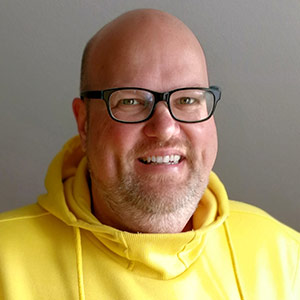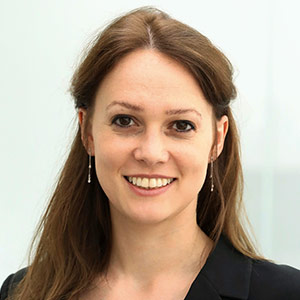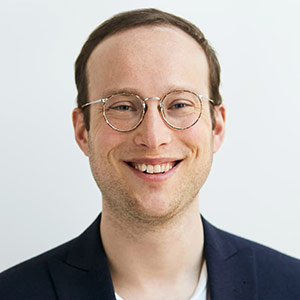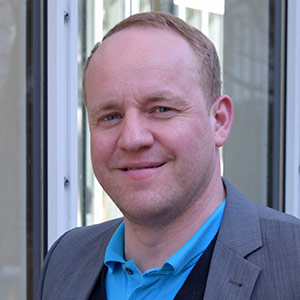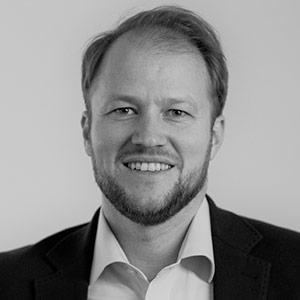About RoX Hackathon 2021 –
we startup healthcare
Registration is closed

October 28th - 30th, 2021
Virtual event
The RoX Hackathon will provide you with the perfect environment to work on pressing challenges within digital health in the fields of neurology, oncology (or your own greenfield topic!). During the 2.5 days of our Hackathon, teams will be supported by professional coaches and RoX experts.
The three best pitches will win a prize and up to three teams among all teams have the opportunity to develop their idea into a business during the 8-weeks RoX Company Builder Program. No team? No worries, apply and find the right team colleagues to work with during our Hackathon – and beyond.
Who should apply?
If you are passionate about digital health and you can imagine starting your own business or even already founded a Startup, you should not miss the RoX Health Hackathon 2021! For this 2.5-days event we are looking for experts from business, healthcare, tech, UX/UI design and regulatory who are excited to develop solutions for one of our challenges.
To participate in the online hackathon you should be based in Europe, available full time from October 28th to 30th and potentially be willing to commit more time in the subsequent months to continue working on your idea to turn it into a successful venture. The hackathon will be held in English but speaking German is a plus.
You can apply as an individual or as a team. If you already identified some potential co-founders, please make sure that you apply individually and indicate your team mates’ names in the respective field in our application form.
We evaluate applications on a rolling basis and invite accepted applicants to our RoX Hackathon Slack community to start discussing potential ideas and form groups. Therefore, we would advise you to apply as early as you can to secure your spot!
And don’t worry if you have never participated in a Hackathon, there is always a first time!
What are the Challenges?
Oncology
Creating long-term impact in aftercare:
Supporting breast cancer patients with adherence and managing side effects
Problem Statement
The diagnosis and treatment presents a variety of challenges to patients as well as their surroundings. Different types of breast cancer bring different challenges with them. In hormone receptor positive breast cancer, patients have to take medication for 5-10 years after the acute treatment period. The medication confronts the patient with a variety of side effects and often seemingly no direct use, leading patients to stop taking the medication. But the adherence to medication is crucial to decrease chances of a relapse.
Background
- Context: Patients often feel discouraged and alone. Even though the disease is overcome, things are not as before. They don't receive close medical support and up to 70% of patients stop taking their medication.
- Problems: While patients are closely monitored by their doctors throughout the treatment, they often fall into a gap during aftercare. Therefore, discontinuation of medication often goes unnoticed.
- Barriers: Costs and reimbursement, access for patients and to doctors.
- Critical success factors: With 5-10 years in medication, it's important to design a solution that encourages long-term engagement and provides immediate value.
- Goals: Develop a solution that helps patients navigate aftercare and fosters long-term engagement and enablement.
Oncology
Digital Biomarkers:
Creating a novel way to support oncology patients individually
Problem Statement
A lot of digital tools already provide valuable support to patients, independent of location, access to doctors or time. But they often still lack precise assessment of the patient's medical condition. This assessment step is important to provide a clearer picture of side effects patients are confronted with during treatment and provide a more individualised and precise intervention, also in oncology.
Background
- Context: In recent years, digital tools have been able to support patients in new ways, including digital biomarkers and algorithms that provide new opportunities in patient care, e.g. with side effect or stress management.
- Problems: The adherence to digital tools and creation of a measurable impact for patients is a challenge. Side effects are often multi-faceted and causes are interdependent.
- Barriers: Only a few possibilities to medically reliably assess vital parameters via mobile phone exist, ensuring precise data analysis and impactful conclusions.
- Critical success factors: Being able to match existing or new (digital) biomarkers with medical needs, reliable data analysis and a perceived benefit for patients.
- Goals: Develop a solution that combines biomarkers, medical need and immediate value for patients
Neurology
Keeping track of Alzheimer’s Disease:
Solutions for monitoring disease progression and changing patient needs
Problem Statement
After patients have been diagnosed with Alzheimer’s Disease (AD), they will enter a long medication/non-medication based therapeutic pathway on which they can be supported. However, this support needs to be tuned to the (slowly) changing requirements and needs that the patients as well as his informal and formal caregivers will have over time.
Background
- Context: AD progression varies between patients, as do needs over time. Monitoring solutions would enhance therapy and allow to support patients and caregivers in a step-wise approach, thereby creating real patient-centric value.
- Problems: Monitoring a patient with current options entails tools and frameworks that are not designed for this purpose, i.e. high frequency or continuous deployment of neuropsychological assessments etc. Moreover, it is unclear how a finer grained disease progression insight will fit to physician workflows and decision making.
- Barriers: Lacking tools, validated methods, structural challenges
- Critical success factors: Keep it simple, most patients who we are talking about are not digitally literate. Physicians, esp. GPs, are not too familiar with actionable monitoring settings in AD.
- Goals: Sketching a solution that will fit both patients and physicians and create value for both
Neurology
Brain Health:
Keeping users engaged in long-term prevention
Problem Statement
Findings from long-term studies show that modifiable lifestyle factors can have significant impact on your brain health. Some quite good assessment tools have been developed to identify these risks on an individual level. However, it is still unclear how we make these insights successfully actionable over a long time.
Background
- Context: Recent publications (cf. Livingston et. al., 2020) show that brain health deterioration can be prevented by altering lifestyle factors such as exercise, nutrition, social engagement etc. In order to achieve this, some topics need to be addressed: Behavioural change and temporal discounting as well as structural determinants of health and matching personalized assessments with offerings.
- Problems: Brain health -when healthy- is not a primary concern of most people but rather an indirect need (i.e. I want to be socially active (primary need) and therefore I need a healthy brain (secondary need)). How can we best address these indirect needs? How can we find personalized solutions?
- Barriers: Lacking awareness, Indirect needs, matching while maintaining data minimization
- Critical success factors: Establish a concept that entails the community around users. Sketching out a good matching mechanism (assessment <> solution)
- Goals: Linking personalized brain health assessment to personalized solutions and creating a long-term feedback loop
Greenfield
Greenfield:
Bring your own topic!
Problem Statement
The COVID-19 pandemic shows us once again the enormous need for the development of innovative solutions and new forms of treatment. Digitalization plays a central role in this and takes hold of all relevant areas of healthcare and prevention. This results in a conceivably wide spectrum of possible applications for the use of digital solutions and innovative approaches.
In order to guarantee long-term successful use and well-being, it is necessary to develop patient-centered solutions that are specifically tailored to the needs of the patient. How can we improve and maintain the well-being of people? Oncology, neurology or any other field! Which challenges do you want to tackle?
Agenda
Pre-Hackathon
Registration
Registration is closed
Candidate screening
Candidate selection (can include an interview) and invitation to event
Team Building
Connect with other experts from different fields in our Slack community and form a team for the upcoming Hackathon
Thursday 28th, October 2021 (9:00 - 18:30)
Ideation
Brainstorm and identify compelling solutions for everyday challenges based on evaluated patient needs.
Value Proposition
Identify underlying problems to outline value and benefits of your solution for the respective patients.
Friday 29th, October 2021 (8:00 - 18:30)
Patient Journey
Define reasonable segments, touchpoints, use cases and relevant stakeholders to create seamless user journeys.
Business Model
Identify business opportunities and pathways to guarantee the long-term success of your project.
Saturday 30th, October 2021 (8:00 - 16:30)
Venture Structure
Create a comprehensive concept of your venture in terms of product requirements, business structure, market access strategy, team setup etc.
- Two and a half days full-time remote Hackathon
- Receive relevant support and mentoring from experts from healthcare, business, regulatory, product development, design and IT
- Get inspired and work together with like-minded people to take the first step to start your own company
- Secure your spot in the 8-weeks program to start your journey as an entrepreneur
The Jury for your final pitch
What connects you with RoX?
For me, RoX is the engine in the Digital Health segment. As a patient, I am desperately waiting for digitalization in the healthcare system to finally catch up with my other areas of life and for my care to improve as a result of progress.
What do you expect when participating in the RoX hackathon?
For me, the hackathon is a glimpse into the future. I hope for new ideas and approaches to positively influence my quality of life and that of many others with digital health.
What connects you with RoX?
For me RoX is all about building healthcare platforms and forging partnerships across the ecosystem.
What do you expect when participating in the RoX hackathon?
The pandemic has accentuated the need to accelerate the development and commercialization of digital solutions and holistic virtual care tools that meet regulatory, data security and privacy requirements. The hackathon is an opportunity to identify “game changers” and ideas that will radically improve healthcare delivery and patient outcomes in the future.
What connects you with RoX?
With RoX I associate deep expertise in the German healthcare system as well as the pharmaceutical industry enriched with digital DNA.
What do you expect when participating in the RoX hackathon?
I am looking forward to innovative ideas and approaches especially in the field of cancer treatment, aftercare and at the interface between oncology and neurology.
What do you expect when participating in the RoX hackathon?
We need high quality solutions for the big challenges we face in the fields of neurology and oncology: RoX Hackathon can be the perfect enabler to bring them to life.
Prizes for the best pitches
1st
- 20 hours with RoX Experts
- Two books for each team member from our recommended reading list
2nd
- 10 hours with RoX Experts
- One book for each team member
3rd
- One book for each team member
Additionally up to 3 teams will be selected after the event and have the opportunity to participate in the RoX Company Builder Program:
What happens after the Hackathon?
Up to 3 teams have the opportunity to enter the RoX Company Builder Program (up to 8 weeks) and potentially make their concept come to life:
- Budget for market research and expert know how to validate the concept
- Workshops and team sessions for various topics (user research, market access, regulatory, ...)
- Access to the RoX and Roche network
Teams that make it through the program will be ready to launch their idea together with RoX.
RoX Company Builder Program
User & Problem Statement
Interview your potential users and deepen you knowledge on the underlying user problem, their needs and create your Personas. Go where no one has gone before.
Crew setup
Identify each other’s strengths and personalities and find out what and who is missing to create your winning crew.
Business Case
Develop your business case and define your potential path to reimbursement in the German healthcare universe.
Regulatory
Navigate your future product through the regulatory solar system, understand whether you create a medical product or not.
Technology
Define the technology your future space ship is using and understand the challenges, potentials and requirements.
Prototype
Create your prototype and test it with your users. Create your roadmap for truly unique solutions to explore unchartered territories.
Final Pitch
Decision: can we found a company?
FAQs RoX Hackathon
What is the RoX Hackathon 2021 about?
The Hackathon is challenge-based - the participants work on a concrete task and real challenges of Neurology, Oncology and other problems.
What is a hackathon?
A hackathon is best described as an “invention marathon”. Anyone who has an interest in using technology to create meaningful solutions attends a hackathon to learn, build and share their creations over the course of a two and a half days event in a relaxed and welcoming atmosphere. You don’t have to be a programmer and you certainly don’t have to be majoring in Computer Science. In fact, we are especially looking to build interdisciplinary teams incl. healthcare experts, business experts, designers, data and IT experts etc.
What is the goal of the RoX Health Hackathon?
The aim of the RoX Health Hackathon is to create new, interdisciplinary solutions in the field of oncology and neurology as well as any other healthcare fields and develop business opportunities for future medical treatment.
Experienced mentors support the teams in their search and development for concrete solutions throughout the entire time. At the end of the Hackathon, the developed concepts will be presented to a renowned jury of experts.
The most promising teams will get access to the 8 weeks RoX Health mentoring program in order to start their own company and accelerate their ideas.
Who can be part of this Hackathon?
Anyone! We actively encourage people from all fields to apply, however, only selected hackers will be chosen to participate.
Physicians, psychologists, nurses, technologists, researchers, designers, entrepreneurs, business leaders, scientists and students - just to name a few.
How can I participate in the RoX Health Hackathon?
Everybody is welcome to apply who feels the need to transform healthcare and build their own company.
You can come as a team, or you can search on the platform for team members for your idea. We can’t wait for your application for the RoX Health Hackathon!
Application deadline: October 24th, 2021
I don't know how to code — May I still apply?
Absolutely! It’s entirely irrelevant what your experience is going into a hackathon, it’s more about your interest in technology and healthcare.
How do the teams work together?
Successful applicants will work together online using Zoom as a video tool and Slack as the main communication channel. Participants can find suitable team members on Slack in the weeks before the Hackathon or join an existing team. There will also be opportunities to find a team at the event day but we would recommend forming teams beforehand on our Slack channel.
Can we also participate as an existing team?
Yes of course. It is actually a plus if you already formed a team and worked together before the Hackathon. A team should consist of no more than 5 members.
We even accept young startups that have already developed a solution in the field of oncology, neurology, or other relevant topics in healthcare.
Will there be prizes?
Absolutely! The most promising teams will have the chance to be part of the 8 weeks mentoring program preparing them to start their own company with the support of RoX Health.
When and where does the RoX Health Hackathon take place?
The Hackathon takes place online from 28th - 30th of October 2021 (Thursday-Saturday).
The Hackathon starts on Thursday morning at 9:00 am. Afterwards the participants will work on their projects until Saturday afternoon. Throughout this time teams will meet mentors and field experts that will support them in the development of their projects.
There will also be experts available during the hackathon for a pitch clinic as well as special guests invited to give insightful aid on how to deliver proposals to the jury.
Why should I get involved?
Glad you asked! We provide the opportunity to work with passionate experts to solve relevant challenges in digital healthcare. The most successful teams will be selected to join the 8 weeks mentoring program curated to further develop and evaluate your idea. After the successful completion of the program you’ll have the opportunity to start your own company with the support of RoX Health.
How long until I know if I have been selected?
We select on a rolling basis but it might be that all seats will be taken at some point. Therefore, we recommend to apply as soon as possible to not miss the chance to be part of this year’s RoX Health Hackathon. You will be informed within about 7 days whether your application has been successful.
Do you have any more questions?
If you have any further questions, please contact [email protected]
Contact
You have questions about your application?
Please contact [email protected]
For any other topics
Feel free to drop us an email at [email protected]
